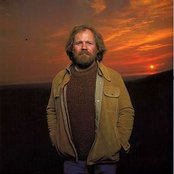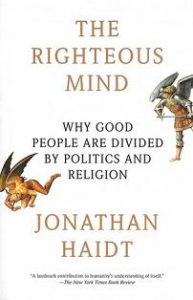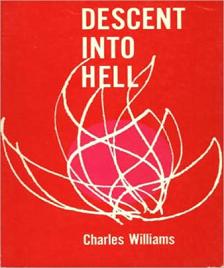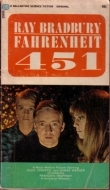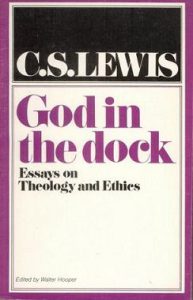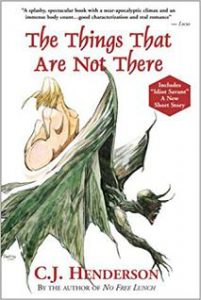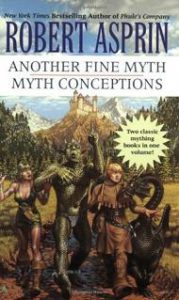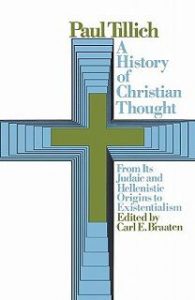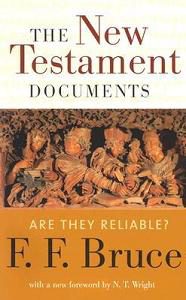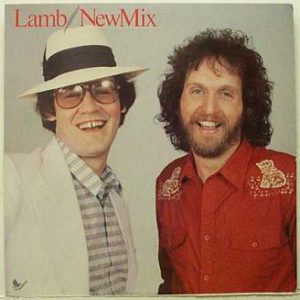This is mark Joseph “young” blog entry #269, on the subject of Versers Arrive.
With permission of Valdron Inc I have previously completed publishing my first three novels, Verse Three, Chapter One: The First Multiverser Novel, Old Verses New, and For Better or Verse, in serialized form on the web (those links will take you to the table of contents for each book). Along with each book there was also a series of web log posts looking at the writing process, the decisions and choices that delivered the final product; those posts are indexed with the chapters in the tables of contents pages. Now as I have posted the fourth, Spy Verses, I am again offering a set of “behind the writings” insights. This “behind the writings” look may contain spoilers because it sometimes talks about my expectations for the futures of the characters and stories–although it sometimes raises ideas that were never pursued, as being written partially concurrently with the story it sometimes discusses where I thought it was headed. You might want to read the referenced chapters before reading this look at them. Links below (the section headings) will take you to the specific individual chapters being discussed, and there are (or will soon be) links on those pages to bring you back hopefully to the same point here.
There is also a section of the site, Multiverser Novel Support Pages, in which I have begun to place materials related to the novels beginning with character papers for the major characters, giving them at different stages as they move through the books.
This is the seventh and final mark Joseph “young” web log post covering this book, covering chapters 127 through 147. These were the previous mark Joseph “young” web log posts covering this book:
- #218: Versers Resume (which provided this kind of insight into the first twenty-one chapters);
- #226: Versers Adapt (covering chapters 22 through 42);
- #235: Versers Infiltrate (covering chapters 43 through 63);
- #243: Verser Redirects (covering chapters 64 through 84);
- #257: Verser Relationships (covering chapters 85 through 105);
- #265: Versers in Motion (covering chapters 106 through 126).
History of the series, including the reason it started, the origins of character names and details, and many of the ideas, are in those earlier posts, and won’t be repeated here.

Quick links to discussions in this page:
Chapter 127, Brown 151
Chapter 128, Kondor 131
Chapter 129, Brown 152
Chapter 130, Slade 131
Chapter 131, Brown 153
Chapter 132, Kondor 132
Chapter 133, Brown 154
Chapter 134, Slade 132
Chapter 135, Brown 155
Chapter 136, Kondor 133
Chapter 137, Brown 156
Chapter 138, Slade 133
Chapter 139, Brown 157
Chapter 140, Kondor 134
Chapter 141, Brown 158
Chapter 142, Kondor 135
Chapter 143, Brown 159
Chapter 144, Slade 134
Chapter 145, Brown 160
Chapter 146, Slade 135
Chapter 147, Kondor 136
The challenge here was that I didn’t want Derek to solve it all, and I didn’t want it to be simple, but I didn’t want him to be completely useless in this, either. At first I had the notion that he was going to find video footage of Sammie removing her journal from its hiding place, but then I thought that this was both too much to give him and something he would have noticed at the time, so I abandoned it. I also realized that I had a problem with a video bug that went with her into her quarters, as it would mean he certainly had footage of her in her sleepwear, probably also in various states of undress, which was problematic. On the other hand, he probably only gave security the footage relevant to the espionage case, so it is possible no one realizes he has it.
I started this with a view to filling a bit of time while Bob and Shella were approaching. The esoterica into which it wandered was all pretty much chance.
The recollection that teenage girls sometimes practice writing the name they think is going to be their future married name came to me abruptly as the connection that would bring Derek into the action of finding the girl.
I did a search for common Romanian surnames, and picked Dalca because it was relatively simple and alliterative. It was on a list of what I took to be the most common thirty-five names in Romania. Constantinescu was also on that list, along with quite a few other “escu” names, which apparently is the Romanian “son of” ending.
I had written this chapter and stopped, thinking I was going to add more to it. When I returned and reread it, meaning to consider how to continue it, I decided that the end was good, and I should leave it that way. I had not yet decided from whose perspective the meeting between Slade and Kondor would be presented, but I thought this was not the chapter for that, so it defaulted to the next chapter in this story, which would be Kondor’s.
I pondered how Derek could find the information on Dorin without having it be too simple, probably for a day or so, then jotted a note just before going to bed. It read, “Romanian police computers were not connected to the Internet–but Interpol was, and Derek could access that fairly easily using his own credentials. He then put in a formal request for information on a Romanian citizen going by Dorin Dalca, estimated at twenty years of age, living somewhere in Bucharest. Criminal record, last known address, known associates.” I used that for the basis of this chapter.
I was telling my Patreon supporters that I was nearing the end of the first draft but would have to edit, and somewhere in the back of my mind I was collecting notes for things to check while editing. Between writing that note and writing this chapter I went back to the beginning and started the edit–I often have to give myself albuterol treatments with a nebulizer, which requires one hand and not much attention, so I can read but can’t type very well; I thought that reading the book and making edits was something I could do while inhaling vaporized medicine, and so make good use of the time.
On the read-through edit I thought of an alternate way for Derek to get the information, but was undecided as to whether to replace the Interpol method or add this (which would mean Romanian police records getting two requests on the same person, and might raise suspicions), so I decided to make a note of it and consider it again later. The thought was that if the police relied on paper records and faxes, Derek could hack the phone company computer and route one of the fax numbers of a small police office to himself, then put in a request as that police station. It was complicated, though, by the fact that he would have to write the request in Romanian on a standard request form he didn’t have.
I knew I was going to have trouble with Kondor in this world, because he doesn’t believe in magic and he has to reconcile his beliefs with the realities around him. Of course, Slade and Shella are quite at home with magic, and won’t think twice about using it in front of him, which they do.
I put this together slowly, trying to work out what had to happen before I had Derek involved in rescuing Samantha. A planning session seemed to be the first step, and when I started the planning session the problems of the rescue became apparent. The solution also became apparent, so I turned my attention to that.
The new tension in Kondor’s life is that his companion Zeke doesn’t exactly disbelieve in magic, and that starts here.
Shella is always better at magic than Slade, and in this particular case we know from For Better or Verse that he used this spell for very short range viewing while she waited well outside the city and watched their movements for several hours, so her ability is already demonstrably better with it.
The speed of casting is built into Multiverser: as your “skill ability level” increases, there are specific points at which you become twice as fast and then three times as fast (as your original speed) at casting spells. Shella is probably twice as fast as Slade, who is an amateur at this against her professional ability.
I had written this short chapter in its entirety, in pieces, but wasn’t happy with it, wanting the story to move forward faster. I sat on it like that for several days, and then persuaded myself that it would be better to end it here and pick up after writing a Kondor chapter. Part of it was that I could skip forward to the part where he was trying to look through the windows, and part of it was the realization that shorter chapters would give a feeling of acceleration toward the end of the book.
I started the party walking, and it occurred to me that people who don’t know anything about magic would think of ways to use magic to make things easier–like traveling through the desert. Joe isn’t going to think that way, because he believes it’s not magic, but Zeke is new to everything, and so he will be full of questions, and “isn’t there an easier way to travel” is certainly one of them.
For at least a day all I knew about this chapter was that the blinds would be drawn if the girl was there. I began to paint a picture in my mind, Samantha found Dorin, Dorin’s handler was unhappy, she was bound and gagged in a chair, and then the handler leaves but tells Dorin to wait twenty minutes for him to be elsewhere, then kill her some way that won’t be messy, then leave the apartment unlocked and go somewhere where he will be recognized, and someone will come deal with the body. Then I realized that they would be speaking Romanian, and Derek wouldn’t understand them. It also occurred to me that city windows are often barred, which became a complication.
I decided that the Reptile House people would want to tag the departing handler, so with that framework I set about having Morach solve the problems I had envisioned for him.
I was moving the group across the desert, making it seem that they had some distance to cover, and preparing for Derek to join them. I knew how that was going to work, but I had to get his story to fit with theirs, so I took them slowly.
This is the setup for Derek’s final chapter in this world. I had originally envisioned him going in as Derek, with the full reptile house team fully armed, but I realized that there were a lot of good reasons why that would not happen, and why it would not be perceived as necessary, so I decided he would have to be Morach. After all, the bow is the only weapon he brought, and it is a weapon he can use without raising the problem that he killed a Romanian citizen.
I had several times considered what it would be like to be inside the bubble during a sandstorm, and I knew the book would end with the travelers approaching the city, and fairly soon. I decided the best observer for telling this experience was Kondor, and that I should do it here to make what was otherwise a dull travel chapter interesting.
This was the way I had intended for Derek to go: taking a bullet to protect Samantha. I had originally envisioned him leaping into it sideways in full size, but the story had forced me to bring him here as Morach, and the only way he would be able to take multiple bullets in that situation would be to be flying at the shooter–otherwise he would simply sail past the line of fire, and Samantha would be hit.
I had envisioned this scene, in which Bob sees Derek’s equipment appear but Kondor misses it, and I knew it was going to have to be told from Kondor’s perspective, so we have an extra Kondor chapter.
I had been wondering how to bring Derek into this world, and then recalled that he was at stage 2 when he entered Why Spy–the dream state. There was no reason to take him out of it, so I played with that a bit. I recognized that he had left the world as Morach, but had insisted on having Derek’s clothes brought on the raid, so he would be able to change. The clothes themselves wouldn’t be too much for Morach to carry, but there are at least two and probably several cans of energy drink, and they are rather heavy. So it was obvious that he would have to travel as Derek.
I was not certain what was going to happen in this chapter; it was possible that the book would end, but there was too much, I thought, to fit in one chapter. I decided that this would give the feel of the wait, and saw in my mind Zeke pulling out a deck of cards to suggest playing poker–something which earlier it was established Kondor did not do on the base. That led to the dialogue, and the quashing of the idea of playing poker with someone who could read your mind, and from there into video games, and then into a somewhat awkward silence. At that point, I thought that the next chapter could be Derek, his arrival, and beginning toward the city, and then Kondor could tell of seeing the city and coming to the gate, a scene my mind had rehearsed quite a few times but which had not been put to paper at all (so if I die within the next few hours it will be something no one ever knows).
As I was re-reading this, it struck me that when Lauren meets Zeke there will be at least the question of his religion. That caused me to think about it, and I started jotting a conversation in the notes on the next novel to include then.
I had set it in my mind that it would take Derek the full night to walk to his gear, but then it struck me that this might seem odd to the reader, who wouldn’t understand why it was so far. I thus decided that the reason is that a drive that didn’t seem that long covered a lot of distance, and even with the removal of the city obstacles it would be a long walk back and on loose sand which would slow his progress.
This chapter was rather organic–I knew where it started, and I let it grow. It simply has to integrate Derek into the group and establish where they are going next, and when.
I wanted the scene at the gate to be told from Kondor’s perspective, because it would seem the most odd to him that they were expected.
The story is suspended here, because it has always been the plan that the Arabian story would be central to the next book.
This has been the seventh and final behind the writings look at Spy Verses. If there is interest and continued support from readers we will endeavor to publish the next novel and behind the writings posts for it.


